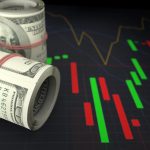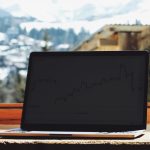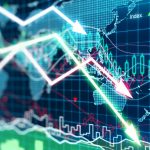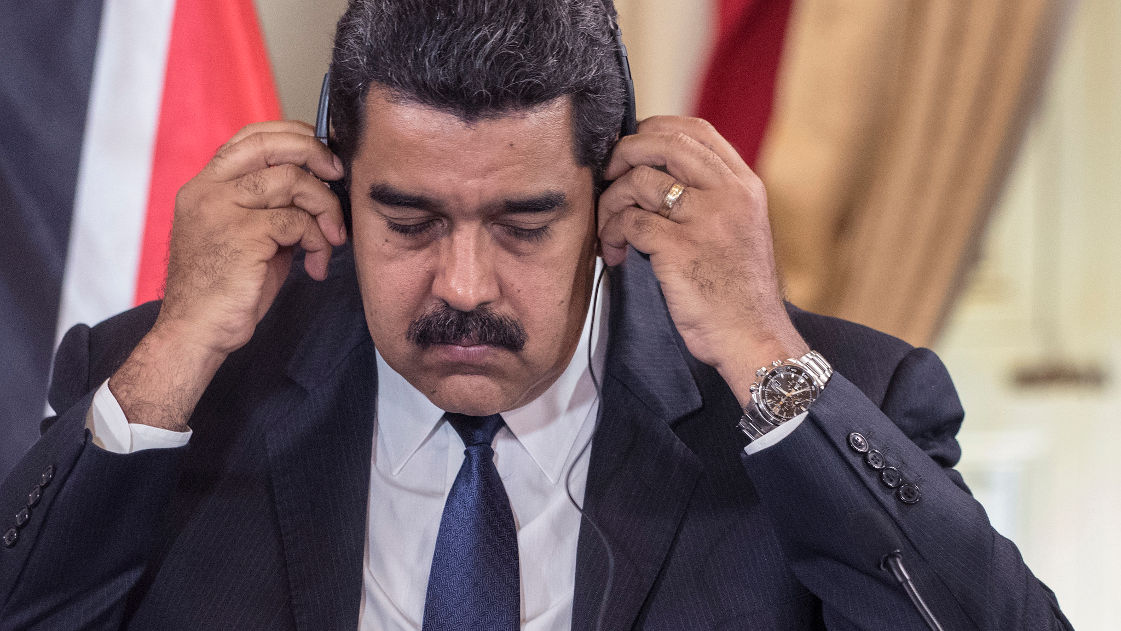CARACAS, Venezuela (ViaNews) – Some argue Venezuela is at war with the U.S. Government and allies who want to seize the immense mineral wealth under the country’s surface and undermine the Chavista government. In a country once led by President-Commander Hugo Chavez, will the current President Nicolás Maduro change the course of history?
Fourth generation war
The same people arguing that the U.S. is at war with Venezuela believe the American’s “own backyard”, i.e. Latin America, is under a Fourth Generation Warfare, a subversive war tactic in which there are blurring lines separating war and politics, military and civilians.
In this so-called Fourth Generation Warfare, hyperinflation, food, medicines, news, and disinformation are the main weapons.
The self called socialism of the 21st century has provided education, food and roof to a growing vast majority of people. And even more important, has provided the knowledge of self being, the pride of pertaining to something.
Nevertheless, Venezuela is yet a capitalist country, and socialism is not present at everyday people’s life.
The driving force
Since the first years of revolutionary but democratically elected President Hugo Chávez, businesses and businessmen have tried to export their earnings to the classical dollar markets, and thus the free local currency convertibility has been abolished. The government has established a fixed exchange rate for essential goods, which is today at 10 Bolivares for 1 US$.
What’s interesting is that the exact same dollar can be sold at the prohibited black market for 100.000 Bolívares. This potential difference from 100.000 to 10 imposes such a pressure over customs, authorities, boundaries and ordinary people that almost nobody can resist.
A full truckload of high-grade gasoline (36.000 liters) in Venezuela can be exchanged for one basket of eggs (3 dozen eggs), which cost 170.000 Bolivars (or US$1.70 at the black market rate).
Thus, this truckload of gasoline which in Venezuela costs US$1.70, when sent over the border to Colombia, the neighboring country, can be sold for $27.000.
And in Colombia, the alleged US ally in the zone, with 8 US military bases in its territory; the commerce of said gasoline is perfectly legal and protected by law.
Local food processing industries -like Alimentos Polar, which started as a beer brewery and now is the biggest food provider receive 10 Bolivars Dollars from the Central Bank to import corn, turn it into corn precooked flower and sell it at a controlled price.
But it is very, very difficult to get hold of one 1 Kg package of said cornflower (brand named Harina Pan, literally translated to Bread Flower). Waiting in four-hour ques is the time sometimes needed to buy, 2 Kgs of said flower at supermarkets.
But the same Harina Pan, made by Alimentos Polar, is sold over the Colombian border at maybe 10.000 times higher price. Those who waited in the line for four hours, sell part of what they bought to their neighbors, for maybe 10 to 20 times its government regulated price.
Somehow, the very much appreciated corn flower made by Alimentos Polar, as well as all “controlled price” foods and medicines, get smuggled into Colombia, Brazil and the Caribbean islands, provoking local scarcity and consequential price increase and inflation.
Really invisible forex market forces
There is no foreign exchange convertibility allowed for the Venezuelan Bolivar, except for special permission protected operations, which have been minimized due to Venezuelan principal export, oil, sustained price fall. (but recently recuperating)
One of the weapons used to undermine everyday economy is an Internet web page called Dolartoday.com, operated from the US, which, breaking Venezuelan law, publishes the value of the black market dollar.
Dolar Today operators claim that their quotation value is derived from the relationship between the amounts of foreign reserves held by the Central Bank, and the circulating local currency. Some experts claim that their dollar value is continuously increasing, merely “invented” and reflects the alleged political convenience of oppositionists.
As a matter of fact, all people selling goods, from the biggest industries to the peasants selling eggs in the streets, mark up their prices daily, reflecting Dollar Today´s quotation, which has doubled in 30 days, from 50.000 to 100.000 for each US dollar, in coincidence with a government decree increasing salaries by 50%.
Special cash gifts have also been established by the government, in coincidence with Christmas, and also with the municipal elections held last Sunday, December 10th.
Some of the near 19 million registered voters have received a Christmas gift of US$ 5, deposited to their bank accounts.
The results of the elections gave a major triumph to Government´s PSUV candidates, which won 91,9% of the elected mayors, with 47% of participation totaling more than 9 million voters.
Riots and hot war
This economically ill society seemed a good ground for oppositionists to get control of the government.
From April till July 2017, they led a series of rallies and self-named “pacific protests” which caused over 120 people dead, including several burnt to death and causing very dramatic international news headlines about “the brutal government repression”.
Venezuelan Government has claimed for long years that the US Government, in alliance with Venezuelan oppositionists, is applying a low-intensity Fourth Generation Warfare designed to destroy the country´s economy and thus, the loyalty of its people to President Nicolás Maduro and the PSUV (United Venezuelan Socialist Party)
Confirming this asseveration, President Donald Trump has imposed economic sanctions against the country, which impede paying for needed foods, medicines, spare parts and all kind of goods, establishing a ”de facto” blockade.
Political error
The toll of 120 Venezuelans dead, the economic blockade imposed by Trump´s government, switched a very adverse economic and political situation into three political electoral triumphs, preparing the ground for a 2018 favorable battlefield.
Back in July, the President proposed the creation of a General Constituent Assembly which was approved by majority voting. In October, new governors were elected, with a majority of 18 for the government and 5 for the oppositionists. On December 10, the Partido Socialista candidates for majors won in 308 districts, a 91,9% of the total.
New ideas for 2018 battleground
The oppositionists, greatly divided by three major electoral defeats, found a new leader: The CEO and owner of Industrias Polar, Lorenzo Mendoza, US-educated, powerful, and young enterprise captain which might win presidential elections, following the trend established by Argentina and Perú.
The government plans to establish the election date during the first three months of 2018 would give Lorenzo Mendoza only a few weeks time to prepare his campaign.
The Petro, a new cryptocurrency
The government is not only working on the political battlefield. It has stopped quoting its oil in US $ and changed it to the Chinese Yuan and announced plans to issue a new cryptocurrency, the PETRO. This cryptocurrency is the first to be backed up by real tangible value, the Venezuelan proven oil, gas, gold and diamond reserves.
It seems not only a defense against the Dolar Today attack, that has inflicted real damage to Venezuelan people, but maybe real threat to the paper dollar, especially considering that China, Russia, India, Canada, Iran, and others are Venezuelan partners in the mineral exploitation.





